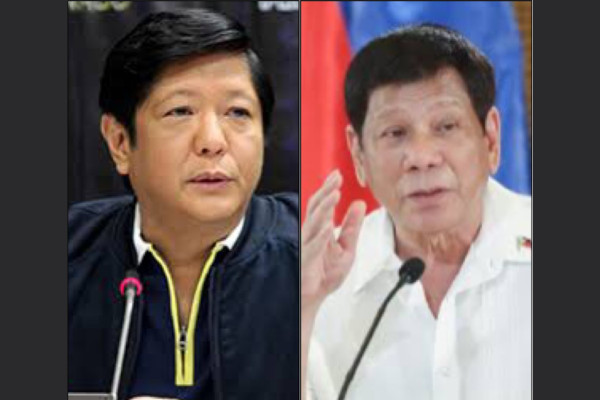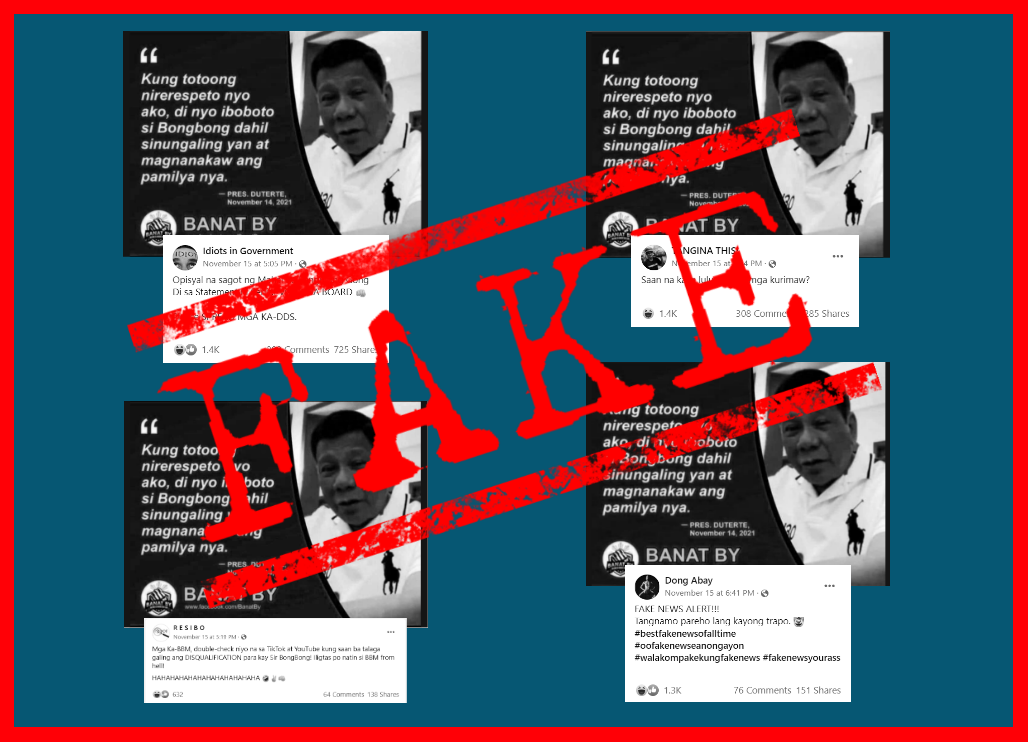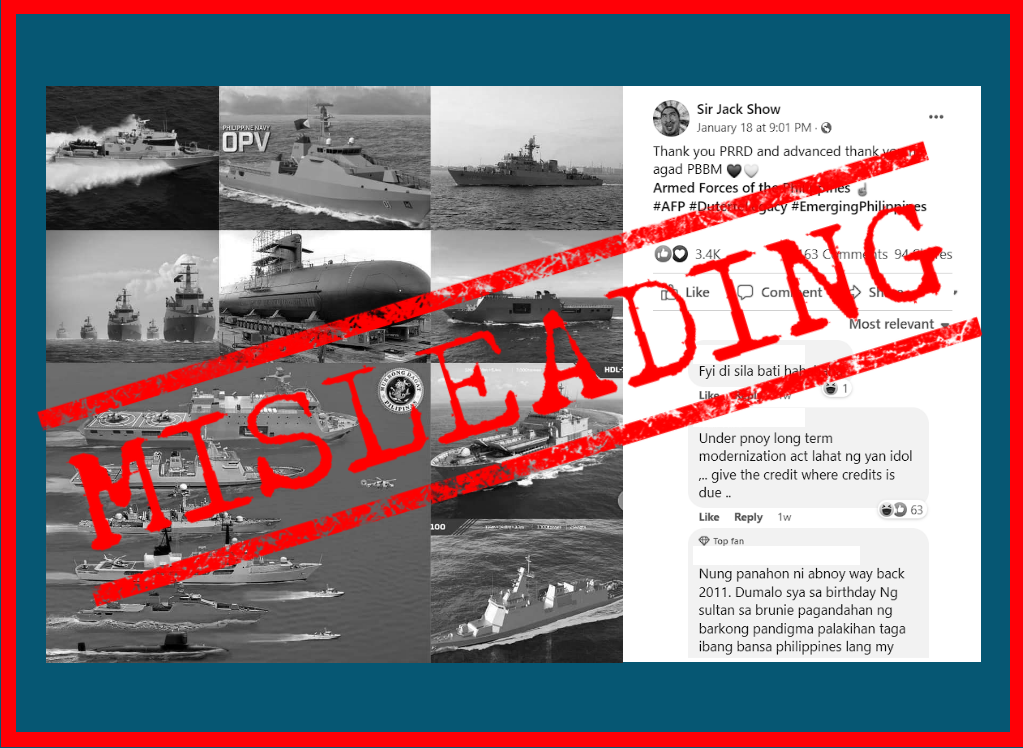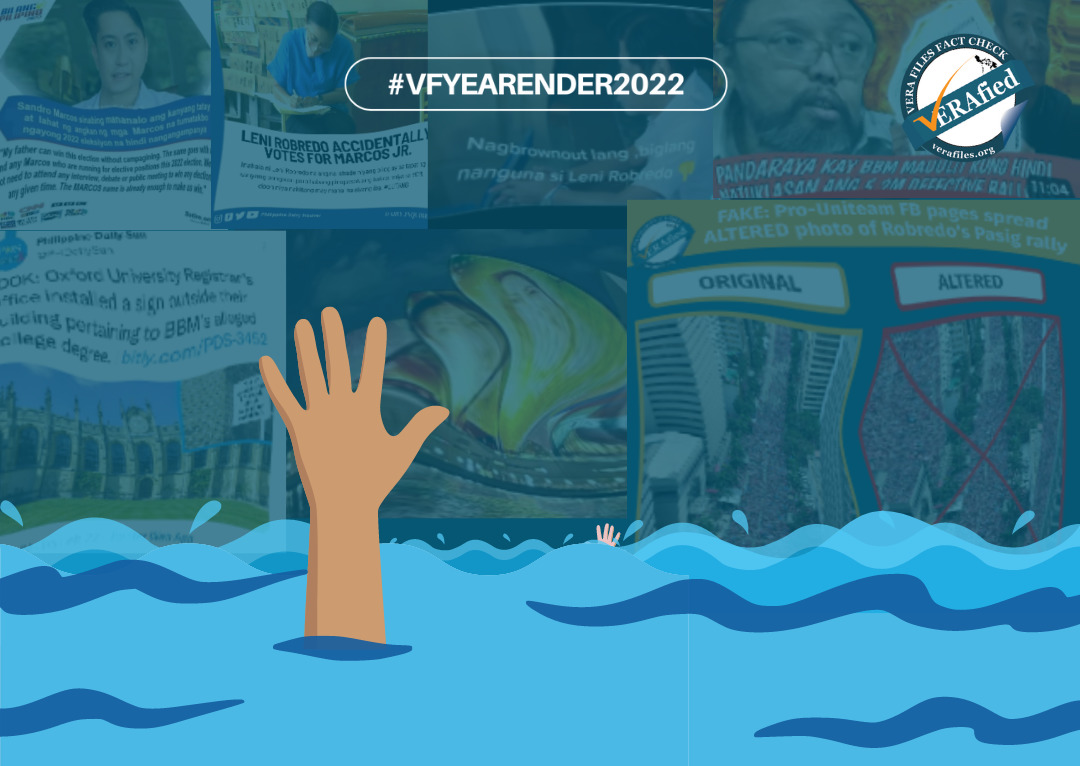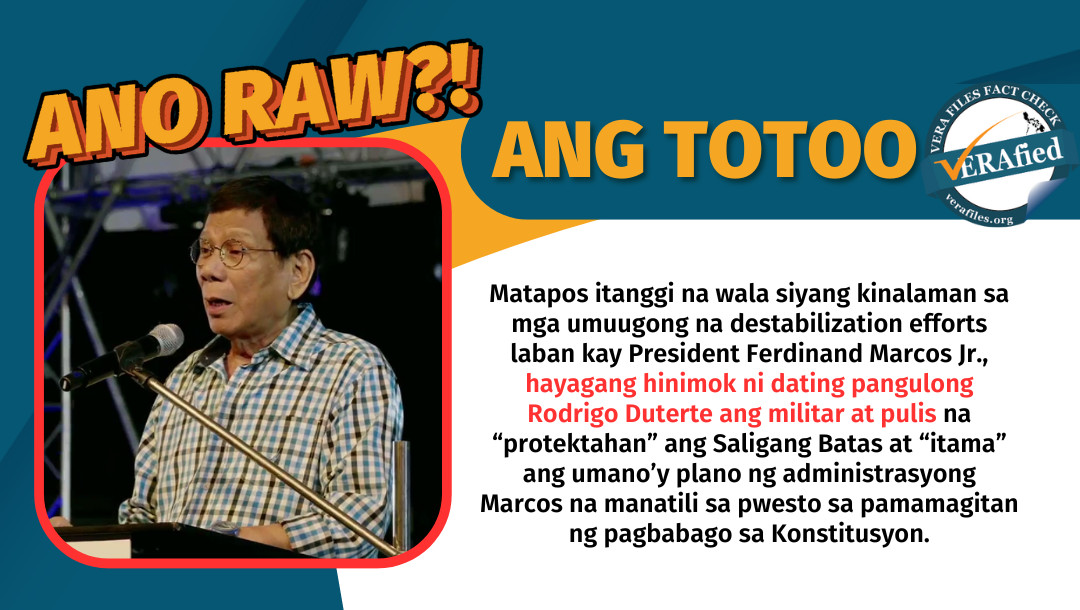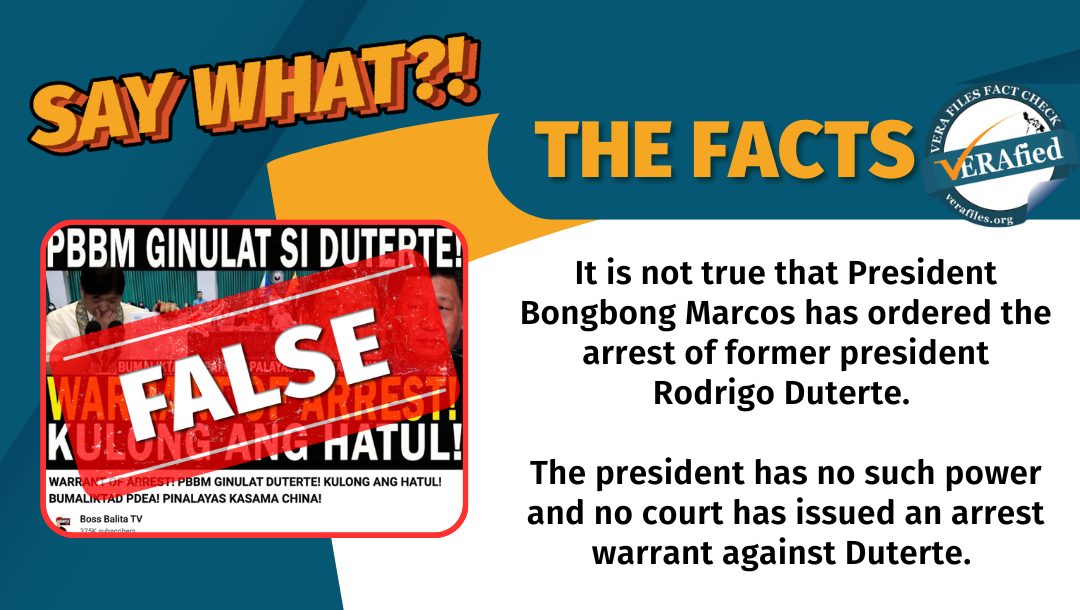In three days, President Rodrigo Duterte leaves Malacañang with the International Criminal Court’s probe of the drug war-related violations hanging over his head, and leaving behind a country heavily in debt and corruption at its worst.
At the same time, Ferdinand “Bongbong” Marcos Jr. assumes the presidency with high expectations that he would keep his positive and hopeful message of unity, which gave him the third-highest mandate of 58.7 % of votes in Philippine election history, next to Ramon Magsaysay’s 68.9% in 1953 and Manuel Quezon’s 67.9% in 1935.
Will the next six years be better or worse for the Filipinos and the Philippines? This makes the inaugural speech of Marcos on June 30 and his first State of the Nation Address (SONA) before a joint session of Congress on July 25 worth watching. He should be defining and fleshing out his administration’s policies and programs, and how he would be different from his father, the late dictator Ferdinand Marcos Sr., who ruled the country from 1965 to 1986.
When Duterte delivered his first SONA in 2016, he said: “I assure you, this will be a clean government… 101 percent it will be clean.” He promised during the campaign that he would end corruption in the bureaucracy within three to six months. “I will fix government… I will stop corruption,” he vowed.
Two years into the presidency, Duterte said he was “thinking of stepping down because [he’s] tired.” He said he had realized the gravity of the problem. “My chase against graft and corruption seems to be endless and it has contaminated almost all government departments and offices.”
The Philippines’ ranking in Transparency International’s Corruption Perception Index (CPI) sank to a historic low in 2021, making it one of the “significant decliners” when it comes to fighting corruption. The country’s ranking slipped to 117th place out of 180 countries — two notches lower than its ranking in 2020, when the country placed 115th.
“With a score of 33, the Philippines is a significant decliner, having lost five points since 2014. Since the election of Rodrigo Duterte, the Philippines has also seen a sharp decline in freedom of association and freedom of expression, making it harder to speak up about corruption,” the report said.
The Philippines’ score of 33 points is way below the Asia-Pacific region’s average of 45 points and the global average of 43 points. Singapore got the highest score among Asian countries with 85 points, ranking fourth globally.
The report noted that the Philippines has yet to make a significant improvement in its fight against corruption as its yearly score just ranges in the 30s. The country got a score of 34 points in 2020, 2019, 2017 and 2012; 35 points 2016 and 2015; 36 points in 2018 and 2013; and 38 points — its highest — in 2014, under the presidency of Benigno Aquino III.
The CPI report used a scoring scale of zero to 100, where 100 means “very clean” and zero means “highly corrupt.” The index measures experts’ and business people’s perceived level of corruption in the public sector.
Duterte’s promise in his 2019 SONA to provide “a comfortable life for everybody, all Filipinos” has also remained just that, a promise.
Under his ambitious multitrillion-peso Build, Build, Build infrastructure program, which was supposed to usher in the “golden age of infrastructure,” only 12 out of 119 flagship projects (IFPs) were completed as of April, based on the report of the Department of Public Works and Highways (DPWH).
The completed projects cost P70.65 billion or 1.4% of the P5.08 trillion total cost of investments to complete the 119 IFPs. The three largest projects completed in terms of cost were: the MRT 3 Rehabilitation Project at P21.966 billion, the New Clark City Phase 1 at P18 billion and the Clark International Airport Expansion project at P14.972 billion.
The DPWH reported to have also built 145,000 classrooms; 2,000 school buildings; 5,555 bridges; and 26,500 kilometers of roads, access roads, expressways and tollways.
Marcos has promised to continue and improve Duterte’s centerpiece program.
On his oft-repeated promise to curb illegal drug trading, Duterte himself had said even before reaching his midterm that it was impossible to achieve.
In his 2016 SONA, Duterte said: “There will be no let-up in this campaign. Double your efforts. Triple them, if need be. We will not stop until the last drug lord, the last financier, and the last pusher have surrendered or put behind bars or below the ground, if they so wish.”
Just a few days ago, International Criminal Court (ICC) Prosecutor Karim Khan asked the pre-trial chamber for authority to resume investigations into the killings in Duterte’s bloody war on drugs when the Philippines was still a member of the ICC, from July 1, 2016 to March 16, 2019, and specifically in Davao from as early as November 2011, particularly the killings by the vigilante group, the “Davao Death Squad.”
Aware of his shortcomings, Duterte has asked the people for understanding. “In a few days, I will be out. ‘Yung nagawa ko, para sa ‘kin, ‘yun na ‘yon, the best that my efforts can really achieve. Kung kulang pa ‘yun, pasensya na, hindi ko na talaga kaya (For all my achievements, for me, that’s just it, the best that my efforts can really achieve. If it is still not enough, I’m sorry, I can no longer do it),” he said, at the inauguration of the new head office of the Metropolitan Manila Development Authority in Pasig last month.
But then, he said what he had failed to do was “not because of negligence” but due to time constraints, noting that “six years would not be enough to finish all the projects.”
Will that be a cue for Marcos Jr. to move for a tenure longer than six years?
As we bid goodbye to Duterte’s six years of broken promises, we say hello to Marcos Jr. with hopes of a better tomorrow.
The views in this column are those of the author and do not necessarily reflect the views of VERA Files.
This column also appeared in The Manila Times.
